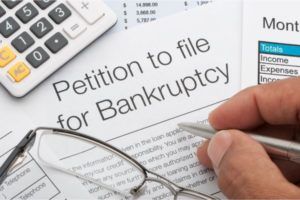Does Declaring Bankruptcy Stop Wage Garnishment?
 Debt is insidious. It creeps up on you, and no matter how hard you try to escape, it seems to gain strength through the struggle. Some are tempted to ignore the situation until it goes away, until they have a better financial situation, until they can find an answer, etc. However, if debt is ignored long enough, a creditor can seek a court order forcing your employer to withhold a portion of your pay to apply toward the debt. When a creditor obtains this type of court order, and your employer is forced to withhold your pay, it is called wage garnishment.
Debt is insidious. It creeps up on you, and no matter how hard you try to escape, it seems to gain strength through the struggle. Some are tempted to ignore the situation until it goes away, until they have a better financial situation, until they can find an answer, etc. However, if debt is ignored long enough, a creditor can seek a court order forcing your employer to withhold a portion of your pay to apply toward the debt. When a creditor obtains this type of court order, and your employer is forced to withhold your pay, it is called wage garnishment.
When a worker’s wages are garnished, they frequently consider turning to bankruptcy, hoping for a solution, hoping to stop the wage garnishment using the protections of bankruptcy. A garnishment takes 25% of after tax income, less a small exemption for each dependant. This cripples most Debtor’s ability to make ends meet.
Can Declaring Bankruptcy Help Stop Wage Garnishment?
7% of U.S. workers have their wages garnished.
The average non-garnished worker earns approximately 25% more annually than those with wage garnishment.
When you consider the statistics, it’s not surprising that individuals subject to wage garnishment are searching for a way to reorganize their debt or discharge their debt to stop the wage garnishment. For individuals in this situation, bankruptcy may provide a solution. Immediately upon filing a bankruptcy petition, the automatic stay goes into effect.
The automatic stay prevents all collection and foreclosure activities, including most wage garnishments. The automatic stay usually lasts until the case is closed or the debts are discharged, unless the debtor has multiple bankruptcy filings in one year. (If you have questions about how filing more than once in one year affects bankruptcy law, contact an experienced bankruptcy attorney as soon as possible).
When DOESN’T Bankruptcy Stop Wage Garnishments?
Some debts are not dischargeable through Chapter 7 bankruptcy. Some of the debts that fall into this category include child support payments, alimony, some tax debt/payments, and student loans. Declaring Chapter 7 bankruptcy does not change or delay any requirements to pay these types of debt. However, filing bankruptcy will nonetheless stop any wage garnishments in place due to nonpayment of any of these types of debt.
Chapter 13 Bankruptcy and Wage Garnishments:
Chapter 13 bankruptcy treats wage garnishment slightly different. The goal in a Chapter 13 bankruptcy is helping Debtors to regain control of their finances over a specific time period (3 to 5 years). Garnishments stop as long as the bankruptcy petitioner complies with their Chapter 13 repayment plan.
Bankruptcy can offer relief from debilitating wage garnishment, but it can also be complicated. Before making any final decisions about bankruptcy, get in touch with Kenneth C. Rannick P.C., Tennessee and Georgia bankruptcy attorney.
The post Does Declaring Bankruptcy Stop Wage Garnishment? appeared first on Kenneth C. Rannick, P.C..











